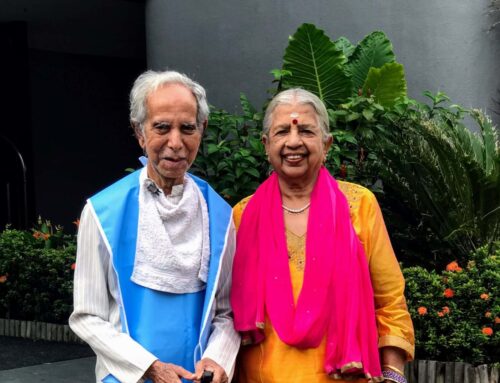White knight to old man’s rescue when black-tie party’s over
Shoba Narayan (Writer)
Hotel insiders in India have been wondering about the fate of the Oberoi hotels group for some time now, given that its octogenarian chairman’s succession plan appears to have failed. In a recent press conference in Kolkata, Prithvi Raj Singh Oberoi, or Biki Oberoi as he is better known, conceded as much when he indicated that his son and nephew, both joint managing directors of the company, would not work together after him.
“So what happens to the Oberoi hotels after the old man?” said one hotelier in response, echoing the feelings of many. Well, as it turns out, Reliance happened. Last week, Reliance Industriesacquired a 14.21 per cent stake for US$217 million (Dh797m) in East India Hotels (EIH), which owns the Oberoi and Trident brands. The cash injection will help the Oberoi group thwart potential takeover attempts, particularly from its rival, the ITC hotel company that already owns a 14.98 per cent stake in the business, just shy of the maximum 15 per cent allowed by Indian takeover laws.
Anything more than 15 per cent and ITC would have to make an open offer for an additional 20 per cent stake, according to regulations. Reliance’s investment was welcomed by Mr Oberoi, and not just because Reliance paid 22 per cent more than market price for its stake. The Indian press dubbed it the “white knight” of the Oberoi hotel group. Reliance’s shares fell 3 per cent following the announcement and EIH’s shares rose 11 per cent. Reliance has pledged not to interfere with the management of the Oberoi hotels, preferring instead to view the investment as diversification from its core manufacturing businesses.
Of the five big Indian hotel chains, the Oberoi is arguably the best, at least in terms of the travel awards it has garnered. The Oberoi Udaivilas in Udaipur is routinely listed as the best hotel in the world by magazines such as Conde Nast Traveller and Travel + Leisure. The Taj group’s palace hotels such as the Rambagh Palace in Jaipur give the Oberoi hotels a run for their awards, but somehow don’t make that final cut. The Leela group has some very nice hotels in Kerala and Goa but their design and execution is hardly cutting edge.
The Park hotels pioneered the concept of small boutique hotels and still remain stylish and edgy, reflecting the modern design sensibility of the owners’ – the sisters, Priya and Priti Paul – but it remains a small chain. The ITC, in contrast, is a massive conglomerate that is into everything from cigarettes to paper. In 1974, the company changed its name from India Tobacco Company to ITC. Their Bangalore property, the ITC Royal Gardenia, recently got a LEED platinum rating and the group is making a push towards going green.
But the character and style of the ITC hotels – including the ITC Maurya in Delhi, frequented by visiting heads of state – somehow betray that they are run by a corporation, not an individual. Mr Oberoi is an old-style hotelier, the kind who knows every detail of his hotels and nit-picks each one. He has an eye for proportion – legend has it that he insists that the solitary rose in each vase is one-and-a-half times the vessel’s height.
His instinct for aptness is also spot on. Oberoi hotels are Indian, but just enough and no more. The staff wear saris and the architecture uses Indian design elements including arches, lattice-worked “jaali” windows and marble counters. But they are also minimalist enough to be comfortable for global travellers. Mr Oberoi himself has a taste for the good life, preferring handcrafted John Lobb shoes, Cohiba cigars, Earl Grey tea, and white-gloved butlers in his homes and black-tie parties.
The challenge for most hoteliers is how to offer consistent service all through its staff hierarchy – from the newest bellboy to the oldest housekeeper. The Oberoi group’s strategy has been to pay above-market salaries and to send its most gifted employees through its two-year in-house training school called the Oberoi Centre for Learning and Development (OCLD). At the Mena House Oberoi in Egypt, one of the concierges informed me that his training at the OCLD was on par with any of the courses he had undertaken in European hospitality schools.
The question now confronting the Oberois is what next? The Oberoi group is still closely associated with Mr Oberoi and his family. He could use the Reliance investment to groom a successor. One possibility is for him to look to JJW Hotels and Resorts. Owned by Sheikh Mohamed bin Issa al Jaber, the group has acquired hotels all over Europe and the Middle East. It owns, for instance, the highly rated UK-based Eton Collection, comprising The Colonnade and Threadneedles, among others. JJW’s management style: hands-off. Perhaps a similarly hands-off style at Reliance could give Mr Oberoi the breathing space he needs to come up with a game plan.
Shoba Narayan is a writer based in Bangalore and the author of Monsoon Diary





Leave A Comment